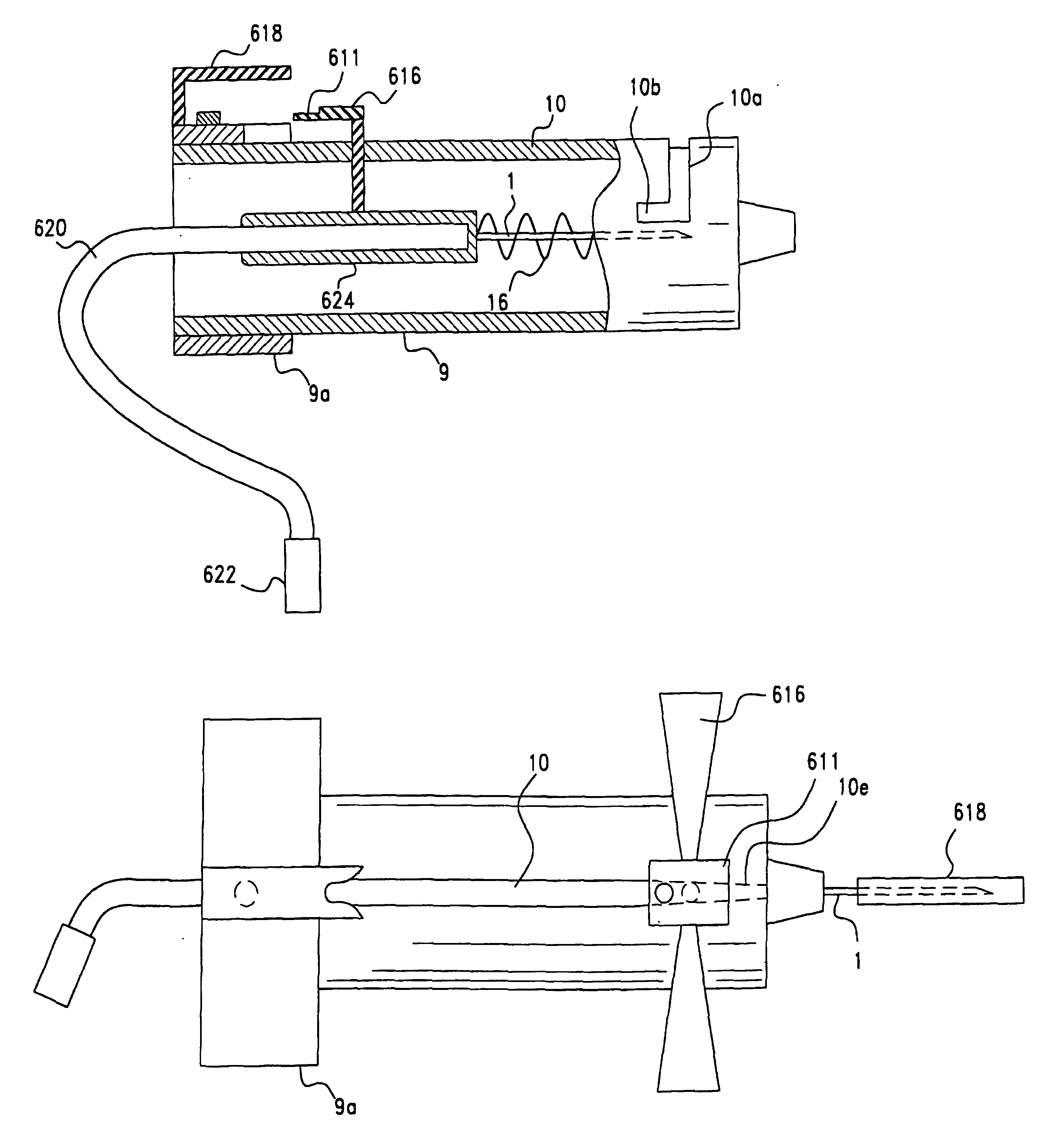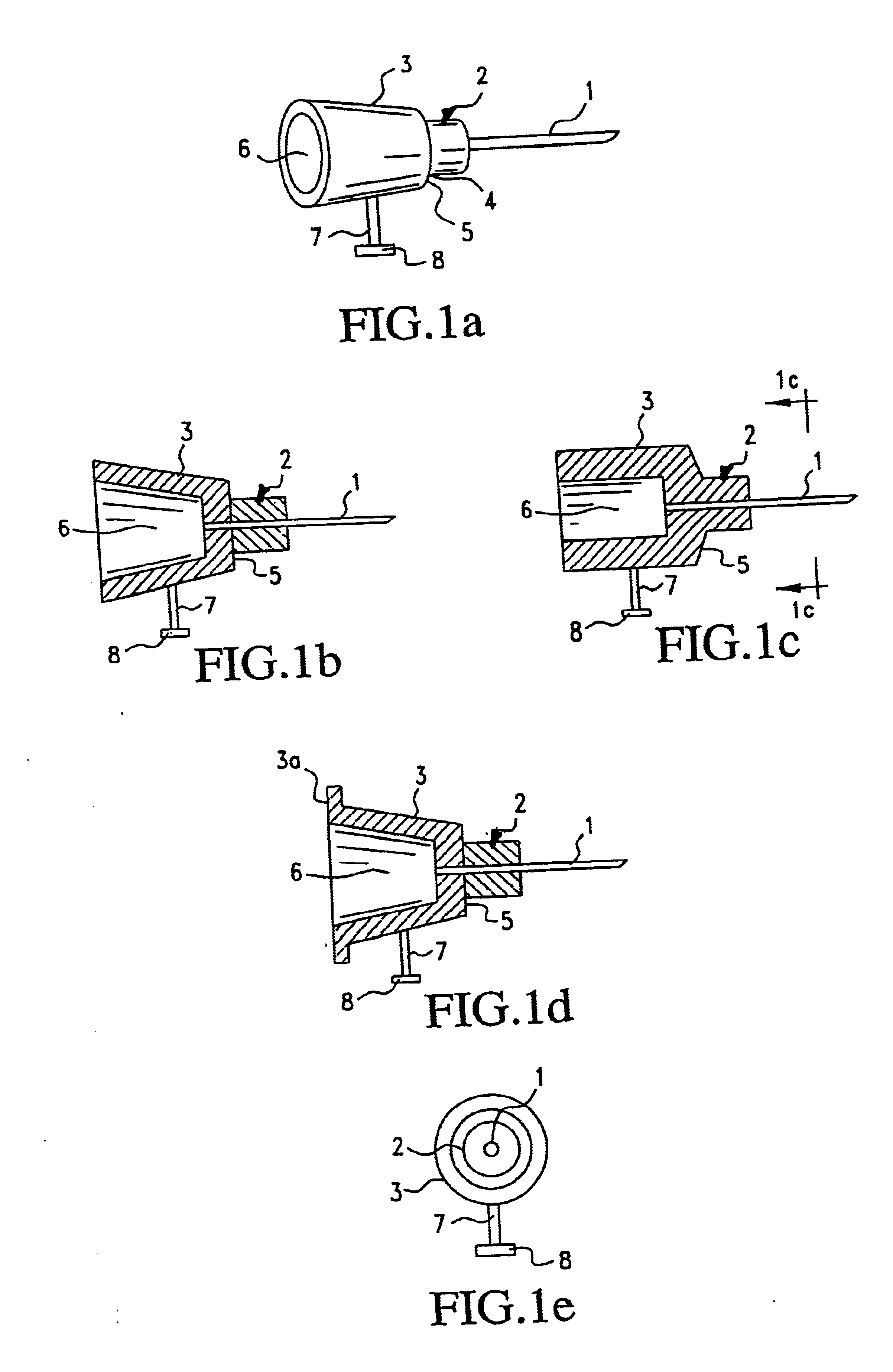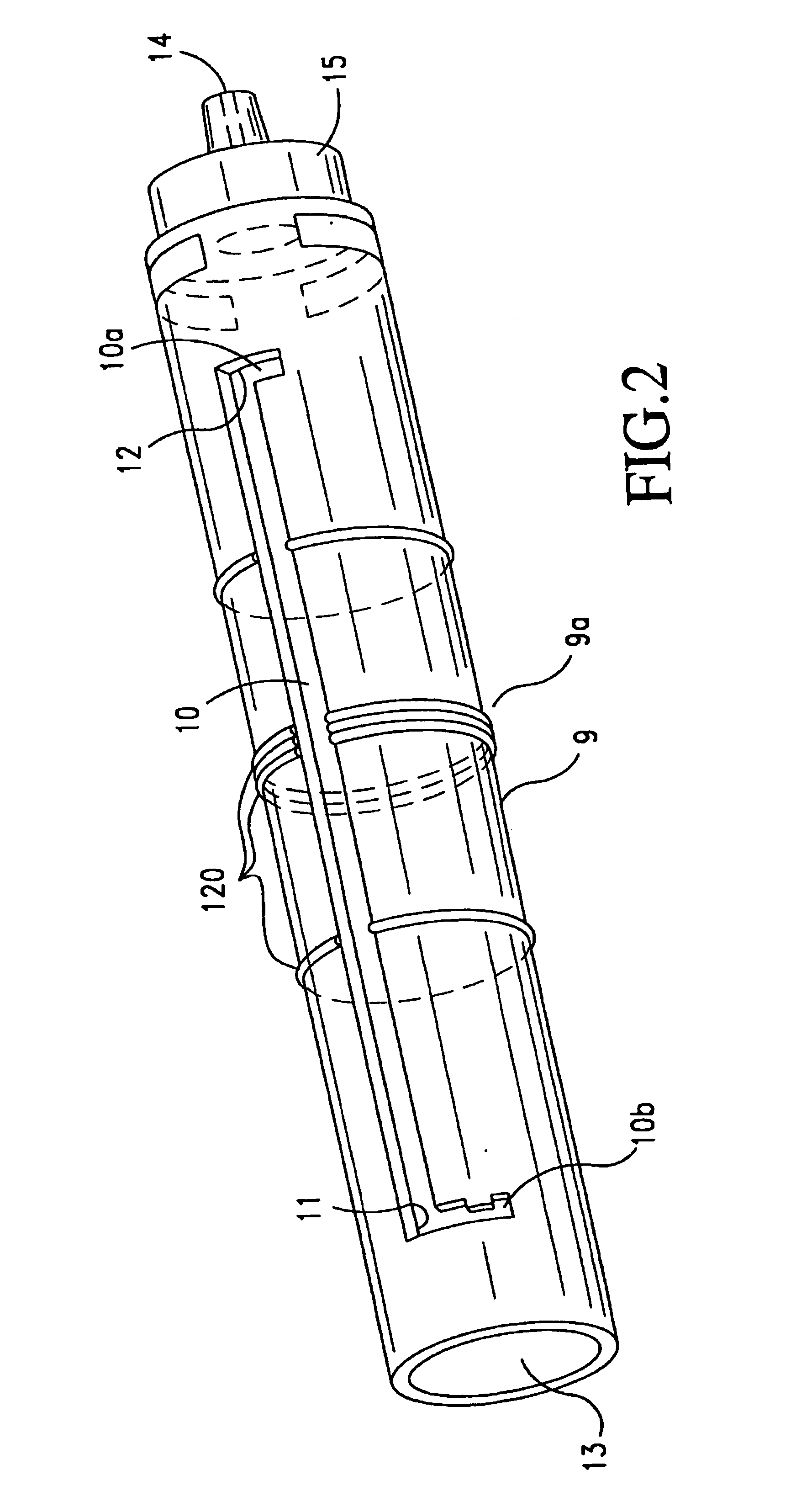Hypodermic syringe needle assembly and method of making the same
a technology of syringe needles and syringes, which is applied in the direction of infusion needles, intravenous devices, infusion devices, etc., can solve the problems of unacceptable accidental injury risk, particularly dangerous, and the inability to readily substitute generic syringe barrels
- Summary
- Abstract
- Description
- Claims
- Application Information
AI Technical Summary
Benefits of technology
Problems solved by technology
Method used
Image
Examples
Embodiment Construction
[0069]The needle used in the present invention is designed for use with a syringe comprising a plunger and a syringe barrel having a tubular wall with a defined outer diameter, where the barrel has an open end adapted to receive the plunger and a closed end having a cylindrically symmetric tip projecting therefrom. The tip of the barrel has a defined diameter which is less than the defined outer diameter of the syringe barrel and a longitudinal bore passing through the tip and the closed end of the barrel.
[0070]FIG. 1a illustrates a hypodermic needle for use in the syringe assembly of this invention. Needle 1 is affixed to hub 2. A hollow bore runs longitudinally through needle 1 and hub 2. An annular sleeve 3 is affixed to the outer periphery 4 of hub 2. A ledge 5 encircling hub 2 is defined by the edge of sleeve 3. Sleeve 3 defines a cavity 6 adapted to frictionally engage the tip of the syringe barrel, as shown in the cross-sectional views of FIGS. 1b and 1c. The diameter of cavi...
PUM
 Login to View More
Login to View More Abstract
Description
Claims
Application Information
 Login to View More
Login to View More - R&D
- Intellectual Property
- Life Sciences
- Materials
- Tech Scout
- Unparalleled Data Quality
- Higher Quality Content
- 60% Fewer Hallucinations
Browse by: Latest US Patents, China's latest patents, Technical Efficacy Thesaurus, Application Domain, Technology Topic, Popular Technical Reports.
© 2025 PatSnap. All rights reserved.Legal|Privacy policy|Modern Slavery Act Transparency Statement|Sitemap|About US| Contact US: help@patsnap.com



